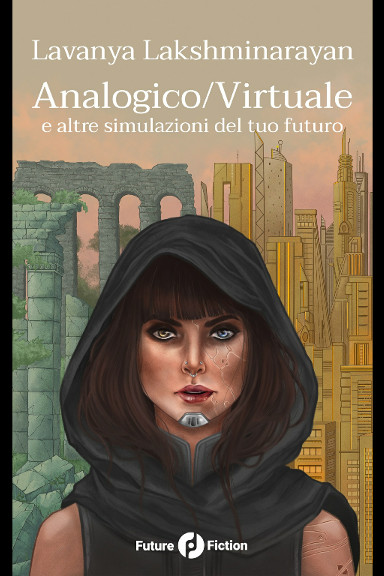
The novel “Analog/Virtual and Other Simulations of Your Future” by Lavanya Lakshminarayan was published for the first time in 2020.
When the nations collapse, corporations take direct control of the cities that survive. Bell Corp has reshaped one of these cities, Bangalore, giving it the new name of Apex City, a place ruled by meritocracy where hard workers can ascend to the higher levels of the new society.
The citizens of Apex City can take advantage of the advanced technologies that have been developed, which allow among other things to conduct their activities in a virtual way. The ones who don’t commit themselves enough and fail, are deported and are forced to live among the Analogs, where they lack modern technologies.
In her first novel, Lavanya Lakshminarayan describes a future society that has a facade of great energy and positivity but hides a very dark side. This novel is structured as a kind of mosaic with the chapters written as short stories intertwined in various ways that show various facets of Apex City’s society and occasionally of the Analog society.
The so-called Virtual society is a projection of the social media-oriented society existing today with a structure that is supposed to ensure that everyone has the chance to reach the highest levels based only on their own merits. However, story after story, Lavanya Lakshminarayan shows how Bell Corp’s many claims of meritocracy are a facade behind which there’s a dystopia in which humans are used only to ensure productivity.
The various chapters / short stories are accompanied by extracts from the Meritocratic Manifesto, which show the facade with a very theoretical orientation towards the development of the citizens’ human potential. The characters’ stories show the contrast between those statements and the exploitation of people, forced to conform within a sort of great machine of which they become cogs that have to work in synchrony. This also means avoiding autonomous thoughts and personal ways of working, which are considered inefficient and unproductive.
Lavanya Lakshminarayan is certainly not the first to create future dystopias in which advanced technologies are used in a distorted way, to better exploit human beings rather than make their lives easier. Certainly, the author shows a great deal of imagination in telling that kind of dystopia. The various stories show different characters and therefore different points of view in really diverse situations that offer an idea of the many ramifications of the life of Virtuals and in some cases also of Analogs.
The messages conveyed by Lavanya Lakshminarayan are not exactly subtle and the ending left me with many doubts. However, in the construction of the various facets of that future society, in my opinion, “Analog/Virtual and other simulations of your future” is a successful novel. The stories of the various characters, some of which are recurring, offer food for thought on the future that awaits us and for this reason, I recommend reading this novel. It’s available on Amazon USA, UK, and Canada.

